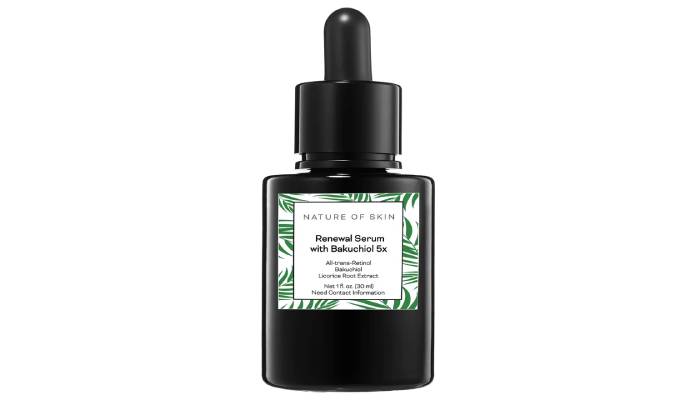How to Build a Skincare Routine That Targets Acne Effectively?

Acne is a common skin condition that affects millions of people worldwide. Whether it’s occasional breakouts or persistent acne, addressing this concern requires a carefully tailored skincare routine. Choosing the right skin care products for acne and following a systematic approach can make a significant difference in achieving clear and healthy skin. Here’s a comprehensive guide to building an acne-focused skincare routine.
Understand Your Skin Type
Before selecting any skin care products for acne, it’s essential to know your skin type. Acne-prone skin can range from oily to combination and even sensitive. Understanding your skin type helps in choosing products that address acne without causing irritation or dryness.
Common Skin Types:
- Oily Skin: Produces excess sebum, leading to clogged pores.
- Dry Skin: Can be acne-prone due to overcompensation of oil production.
- Combination Skin: Features oily areas (like the T-zone) and dry areas.
- Sensitive Skin: Reacts easily to certain ingredients.
Build Your Acne-Focused Skincare Routine
Morning Routine:
- Cleanse Gently: Start your day with a gentle, non-comedogenic cleanser to remove excess oil and impurities without stripping your skin. Look for cleansers containing salicylic acid or tea tree oil for acne control.
Recommended Ingredients:- Salicylic Acid: Exfoliates and unclogs pores.
- Benzoyl Peroxide: Kills acne-causing bacteria.
- Tone for Balance: Apply a toner to rebalance your skin’s pH and remove any leftover debris. Toners with witch hazel or niacinamide are excellent for calming inflamed acne.
- Moisturize: Hydration is key, even for acne-prone skin. Use a lightweight, oil-free moisturizer with ingredients like hyaluronic acid or aloe vera.
- Sunscreen: Protect your skin from UV damage with a broad-spectrum, non-comedogenic sunscreen. Sunscreens with zinc oxide or titanium dioxide are ideal as they are less likely to irritate acne-prone skin.
Evening Routine:
- Double Cleanse: If you wear makeup or sunscreen, start with an oil-based cleanser followed by a gentle foaming cleanser to ensure all traces of dirt and oil are removed.
- Treat with Actives: Target acne with treatments containing:
- Retinoids: Promote cell turnover and reduce clogged pores.
- Benzoyl Peroxide: Effective for reducing acne-causing bacteria.
- AHAs/BHAs: Exfoliate and unclog pores.
- Apply these treatments after cleansing and toning but before moisturizing. Use them sparingly to avoid over-drying your skin.
- Moisturize: Reapply a soothing, lightweight moisturizer to lock in hydration and repair your skin barrier overnight.
- Spot Treatment: For stubborn pimples, use a spot treatment containing sulfur or salicylic acid.
Choose the Right Skin Care Products for Acne
When building your skincare routine, the right products can make all the difference. Here’s what to look for:
Ingredients to Look For:
- Salicylic Acid: Penetrates pores and dissolves sebum.
- Benzoyl Peroxide: Kills acne-causing bacteria and reduces inflammation.
- Niacinamide: Soothes redness and strengthens the skin barrier.
- Tea Tree Oil: A natural antibacterial agent.
- Retinoids: Promote cell turnover and reduce acne scars.
- Aloe Vera: Calms and hydrates irritated skin.
Ingredients to Avoid:
- Heavy oils like coconut oil.
- Alcohol-based products that dry out the skin.
- Fragrance and dyes that may irritate sensitive skin.
Exfoliation: The Key to Clear Skin
Exfoliation helps remove dead skin cells that can clog pores and contribute to acne. However, over-exfoliating can damage your skin’s barrier. Limit exfoliation to 1-2 times per week and choose gentle exfoliants like:
- Chemical Exfoliants: AHAs (glycolic acid) and BHAs (salicylic acid).
- Enzyme Exfoliants: Papaya or pineapple enzymes for gentle exfoliation.
Lifestyle Tips for Acne-Prone Skin
In addition to using the right skin care products for acne, your lifestyle choices can impact your skin’s health.
- Healthy Diet: Avoid excessive sugar and dairy, which can trigger acne. Include antioxidant-rich foods like green tea, berries, and leafy greens.
- Stay Hydrated: Drink plenty of water to keep your skin hydrated from within.
- Don’t Touch Your Face: Avoid transferring bacteria from your hands to your face.
- Clean Pillowcases Regularly: Use fresh pillowcases to minimize bacteria and oil buildup.
- Manage Stress: Stress can lead to hormonal fluctuations, worsening acne. Practice stress management techniques like yoga or meditation.
Consult a Dermatologist
If your acne persists despite following a consistent skincare routine, consult a dermatologist. They can recommend:
- Prescription-strength treatments like retinoids or antibiotics.
- Procedures such as chemical peels or laser therapy.
- Advice on hormonal acne treatment.
Be Patient and Consistent
Achieving clear skin takes time and consistency. While it’s tempting to try multiple products at once, stick to a routine for at least 6-8 weeks before evaluating results. Keep in mind that purging (temporary worsening of acne) may occur when introducing new active ingredients, but this typically subsides within a few weeks.
Conclusion
Building a skincare routine that targets acne effectively requires understanding your skin’s needs, choosing the right skin care products for acne, and staying consistent. By following the steps outlined above and maintaining a healthy lifestyle, you can achieve clearer and healthier skin over time. Remember, every skin journey is unique, so find what works best for you and be patient with the process.




